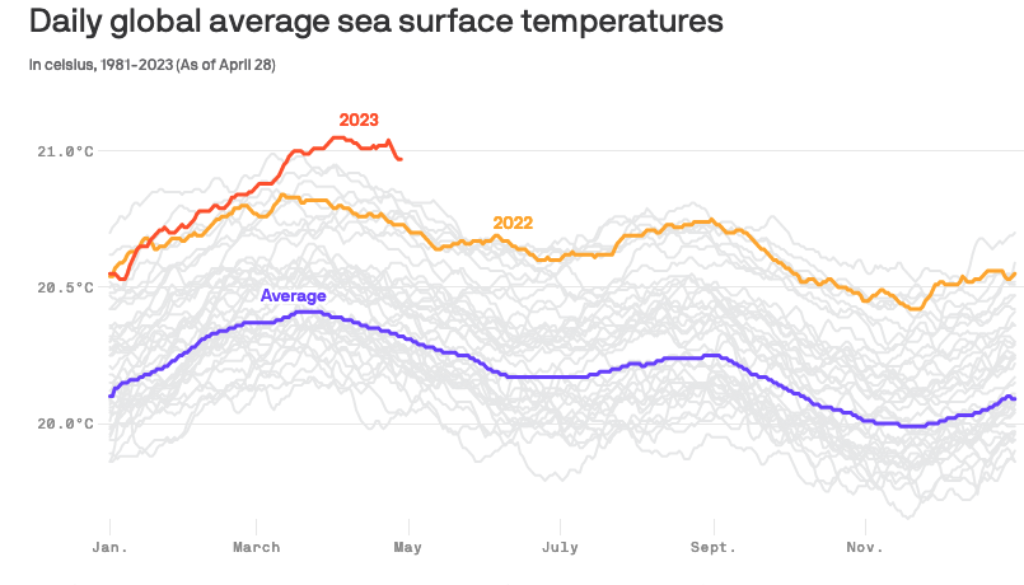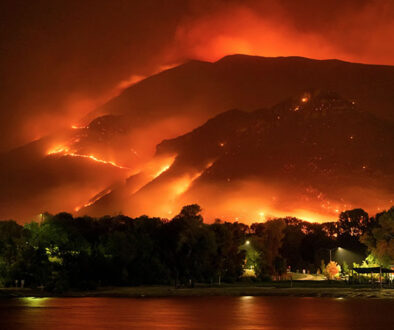Unprecedented ocean warming
From Carbon Brief:
‘UNCHARTED TERRITORY’: Since mid-March, global average sea surface temperatures have been higher than at any time since records began in 1982, fuelling concerns that Earth is entering “uncharted territory” because of climate change, the Guardian reported. Global sea surface temperatures reached 21.1C at the start of April, topping the previous high of 21C in March 2016, according to data from the US National Oceanic and Atmospheric Administration.
The Guardian added that these temperatures typically dip towards the end of April after reaching their annual peak in March or early April, but that temperatures have remained high this year for the first time since records began. The record ocean heat has “scientists scratching their heads”, Prof Mike Meredith, a researcher from the British Antarctic Survey, said to the Guardian. He told the publication: “The fact that it is warming as much as it has been is a real surprise and very concerning. It could be a short-lived extreme high, or it could be the start of something much more serious.”
EL NIÑO INCOMING: The Guardian noted that the world is currently on the cusp of an El Niño, a periodic natural phenomenon in the tropical Pacific Ocean that affects many regions, causing a warming impact globally. “But the El Niño system is yet to develop, so this oscillation cannot explain the recent rapid heating,” the publication said. However, Axios reported that some climate scientists do think the pulse in ocean heat could be related to El Niño – specifically, the transition to El Niño from La Niña, the climate pattern that acts as El Niño’s opposite. Axios said: “When a La Niña event gives way to an El Niño, as is happening now, large amounts of ocean heat that had been lurking beneath the ocean surface is drawn upwards, according to Michael Mann, a climate scientist at the University of Pennsylvania. The result, Mann told Axios via email, is ‘a sizable increase’ in tropical Pacific and global ocean surface temperatures during the transition.”
STEP CHANGE: The ocean surface temperature spike is likely to also reflect the fact that, since the last major El Niño in 2016, global average surface temperatures on land and sea have increased because of climate change, scientists told Axios. It reported: “This means the 2023 El Niño is elevating global average temperatures from a higher starting point, making it easier to set records. This is like a basketball player playing on a court with a steadily higher floor, making it easier to dunk the basketball.” BBC News also reported on how the spike in ocean temperatures could represent the impact of El Niño combining with human-caused climate change. It reported: “Some research has shown that the world is warming in jumps, where little changes over a period of years and then there are sudden leaps upwards, like steps on a stairs, closely linked to the development of El Niño.”
Several scientists contacted by BBC News were “reluctant to go on the record about the implications” of such step changes, according to the article. It added: “One spoke of being ‘extremely worried and completely stressed’.”




